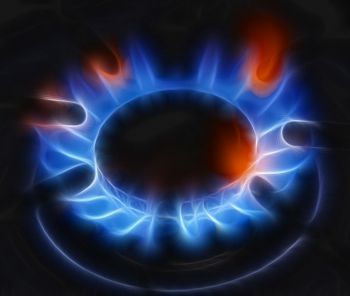Gas can be a bridge to a low-carbon future, says new report
By: Jacqui Bealing
Last updated: Wednesday, 12 November 2014

A major new report co-written by a Sussex academic suggests that gas could play an important role as a ‘bridging fuel’ to a low-carbon economy, but warns that it won’t be long before gas becomes part of the problem rather than the solution.
Jim Watson, Professor of Science Energy Research Policy in SPRU, is also research director of the UK Energy Research Centre (UKERC), whose report is published today (12 November).
The research combines the latest energy system modelling techniques with analysis of UK gas security to assess future demand. To prevent global temperatures rising above 2oC, the research suggests that further gas use will be needed in the short term to replace coal and complement the increases in low-carbon energy sources that must also occur.
However, this is dependent on gas use beginning to fall in the late 2020s and early 2030s, with any major role beyond 2035 requiring the widespread use of carbon capture and storage. There is also significant geographical diversity in the role that gas can play in addressing climate change; with a very limited use in some regions and an extended and strong role in others.
“Gas is often put forward as a transition fuel to a low carbon future. Our research shows that it can play this role. However, global gas use will need to peak in 2025 to meet global climate targets unless carbon capture and storage technologies are commercialised," says Professor Watson.
To date the UK has shown resilience to international supply constraints. However, as domestic production declines, the UK’s reliance on imported gas will grow. Existing Norwegian fields that account for most of the UK’s imports will begin to decline in the 2020’s and the UK may have to access more of its gas from other sources.
The prospect of a UK shale gas revolution over the next decade, the key time-period where gas could act as a transition fuel, is unlikely to be of sufficient scale to significantly reduce UK import dependence or gas prices.
The UKERC report recommends rapidly expanding investment in alternative low-carbon energy sources and investing in more gas storage, which would help protect consumers against short-term supply disruption and price rises.
The authors argue that what is required from government is a policy of ‘gas by design’ that plans now for the changing role of gas in the UK energy mix; ensuring future UK gas security and a smooth transition to a low-carbon economy.
‘A Bridge to a Low-Carbon Future? Modelling the Long-Term Global Potential of Natural Gas” www.ukerc.ac.uk/support/tiki-download_file.php?fileId=3717 Authors: Christophe McGlade (UCL), Mike Bradshaw (Warwick Business School), Gabrial Anandarajah (UCL), Jim Watson (UKERC/University of Sussex) and Paul Ekins (UCL).
